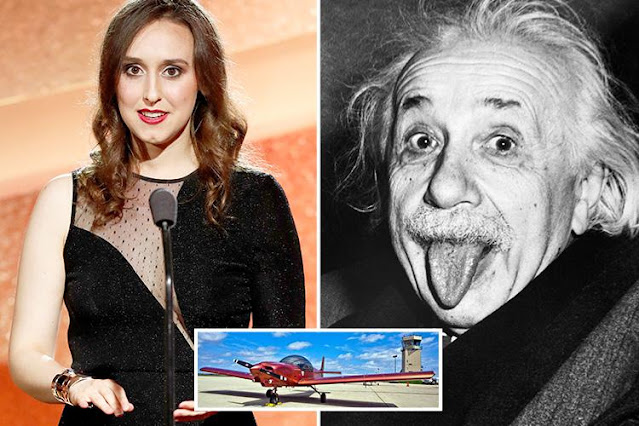By the time she was 13, Sabrina Gonzalez Paterski had both built and learned to fly her own aircraft. A year later, she proceeded to take solo flight in that very plane.
Shortly after, that same teenage girl walked into the campus offices at MIT, seeking approval for her single-engine plane. She received it. So it probably doesn’t come as a surprise that at just 21 years old, Pasterski was already a physics Ph.D. candidate at Harvard.
The Chicago native’s research in high-energy physics theory has taken the physics world by storm. Five years ago, when she was 22, a profile in OZY referred to her as “the next Einstein.” To this, she told InStyle, “No one will be Einstein. He was who he was.”
And while this degree of humbleness is admirable, Pasterski explores some of the most complex and challenging issues in physics, just as Einstein did early in his career. It’s hard not to draw the parallel.
Shifting our understanding of the Universe
Pasterski’s papers have been cited by Stephen Hawking, Andrew Strominger, and beyond. Her work seamlessly delves into topics that most people cannot even begin to wrap their heads around: spacetime and black holes, explanations of gravity in the context of quantum mechanics, Low’s subleading soft theorem as a symmetry of QED (yes, we’re still speaking English).Discoveries in this arena are so significant as to shift our entire understanding of how the universe works.
Pasterki’s website, PhysicsGirl.com, is the home of her flawless resume, achievements, publications, and proficiencies, which have caught the attention of some of the most brilliant individuals at NASA. Amazon founder Jeff Bezos already offered her a job.
So, what is she up to today?
Pasterki still hasn’t taken Bezos up on his offer. She wrapped up her PhD at Harvard and moved on to the Princeton Center for Theoretical Science to continue her research.
She’s diligently studying her craft, giving outreach talks from Princeton’s campus, and according to her resume, enacting her skill of “spotting the elegance within the chaos.”
Inc. reports that Pasterski has been granted thousands of dollars to support her work, including a $250,000 fellowship with the Hertz Foundation and a $150,000 fellowship with The National Science Foundation, both extending through 2020.“I don’t know exactly what problem I will or will not end up solving, or what exactly I’ll end up working on in a couple of years,” she explains in the video below. “The fun thing about physics is that you don’t know exactly what you’re going to do. And normally things just change very quickly — kind of irreversibly — if they’re really right.”


